MercoPress. South Atlantic News Agency
Tag: Tariffs
-
Wednesday, April 9th 2025 - 10:57 UTC
Trump ups tariffs on Chinese products to 104%

US President Donald Trump has escalated the trade war with China by imposing a 104% tariff on all imports from that country, effective immediately, the White House announced Tuesday. This follows China’s retaliatory 34% tariff on US goods to take effect on Thursday.
-
Monday, April 7th 2025 - 10:12 UTC
Early dawn stock markets show significant declines
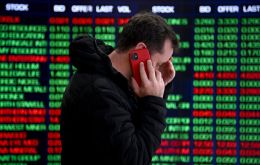
Australia's and most Asian stock markets experienced significant declines early Monday amid the global tariff war triggered by U.S. President Donald Trump. The Hang Seng Index in Hong Kong dropped 9.1% to 20,778.10, with a peak intraday fall of 10.2%, marking its worst day in over a year. Across the Asia-Pacific, 11 of 14 equity markets hit 52-week lows. In mainland China, the CSI 300 Index fell by 7.6%, while the Shanghai and Shenzhen Composite Indexes dropped by 7.4% and 9.8%, respectively. Japan’s Topix and Nikkei indexes also slumped, by 9.6% and 6.5%, respectively.
-
Saturday, April 5th 2025 - 10:09 UTC
Trump's measures make dollar rise in Brazil
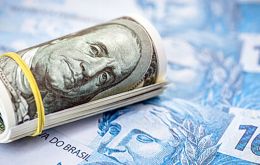
The quotation between the Brazilian real and the US dollar rose Friday to US$ 1 / R$ 5.83 after China announced retaliatory 34% surcharges against US President Donald Trump's tariffs, which fueled fears of a global recession, triggering turbulence in financial markets.
-
Thursday, March 6th 2025 - 21:14 UTC
Trump postpones tariffs on Mexican items at least until April 2
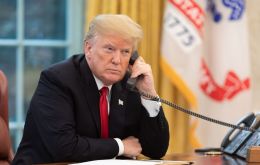
US President Donald Trump announced a temporary exemption from new 25% tariffs for goods from Mexico covered under the 2020 United States-Mexico-Canada Agreement (USMCA). The Republican leader adopted the measure following a telephone conversation with Mexican President Claudia Sheinbaum. The exemption, effective until at least April 2, reverses tariffs imposed earlier this week, aimed at addressing fentanyl trafficking and trade imbalances.
-
Wednesday, March 5th 2025 - 10:38 UTC
Trump's tariffs become effective, but new compromise expected
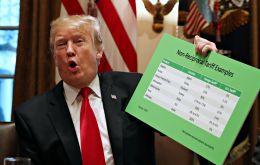
The United States implemented tariffs on imports from Mexico, Canada, and China, triggering responses from these nations and causing a market meltdown. The tariffs include a 25% levy on imports from Mexico and Canada and an increase from 10% to 20% on goods from China. The move seeking to address fentanyl trafficking and border security has failed to meet expectations.
-
Tuesday, May 31st 2022 - 10:52 UTC
Elimination of a “Brazil cost” item represents a further 1,5 percentage point reduction in tariffs
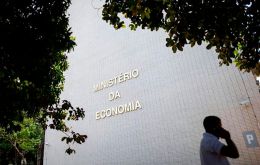
The Brazilian government is drafting a presidential decree to change tax revenue mechanisms, which the economic team argues it will lead to a 1.5 percentage point reduction in the rates levied on all imported products. This is part of president Bolsonaro's administration policy of (gradually) opening the Brazilian economy to foreign competition.
-
Saturday, October 9th 2021 - 09:55 UTC
Agreement reached between Argentina, Brazil to cut down common external tariffs by 10%
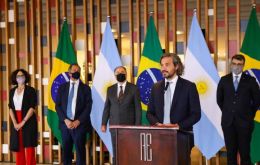
The Governments of Argentina and Brazil Friday agreed to cut down the common external tariffs (CET) by 10% “in a very wide universe of products” after months of tensions among members of Mercosur on the issue.
-
Monday, June 7th 2021 - 09:05 UTC
Cardoso and Lula da Silva support Argentina in the Mercosur tariff reduction controversy
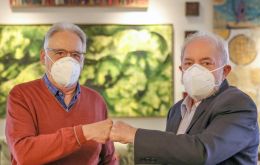
Former Brazilian presidents Fernando Henrique Cardoso and Lula da Silva signed a statement in which they support Argentina's position in the Mercosur controversy regarding a flat unilateral tariff reduction as sponsored by president Jair Bolsonaro, with the backing of Uruguay, but rejected by President Alberto Fernandez.
-
Friday, June 4th 2021 - 09:55 UTC
Lacalle Pou wants Uruguay to compete in an unprotected foreign trade scenario
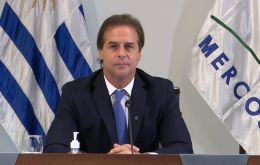
Uruguayan President Luis Lacalle Pou said Thursday during the virtual Export Day celebrations that “we like to play on a large court, and not on a small, protected one.”
-
Monday, May 3rd 2021 - 09:56 UTC
Argentine Ambassador to Mercosur wants new tariffs to boost local production

Argentina's Ambassador to Mercosur Mariano Kestelboim Sunday said he favoured “a new common external tariff that promotes productive development.”
